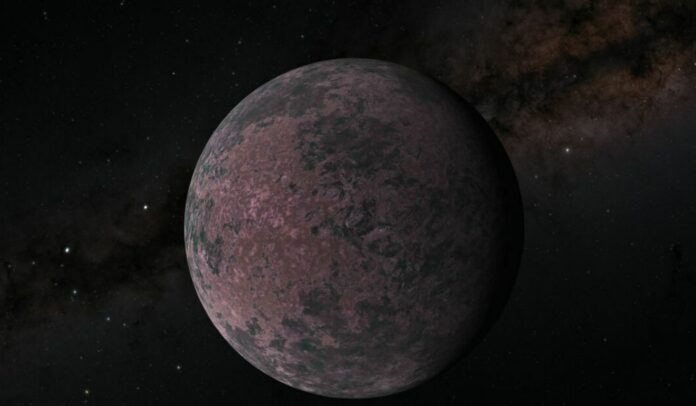Astronomers from the University of Kansas discovered that GJ 1252 b, a scorching-hot “super-Earth” identified in 2020, may have either a thin atmosphere or none at all.
Astronomers have taken a closer look at GJ 1252 b, a rocky, terrestrial “super-Earth” identified in 2020, and discovered that the exoplanet may have a very thin atmosphere or none at all.
The planet orbits an M-type star, and according to lead author Ian Crossfield, “It’s the smallest exoplanet for which we have such tight constraints on its atmosphere.”
The “transit method” is a method used by astronomers to find and study exoplanets by detecting how much light the planets block out when they move in front of their host stars. Using this technique, NASA’s Transiting Exoplanet Survey Satellite (TESS) in 2020 found the exoplanet GJ 1252 b, which is 65 light-years away and has a radius 1.18 times that of Earth. Using the Spitzer Space Telescope prior to its retirement, astronomers were able to obtain a closer look at the exoplanet and its atmosphere for this new study.
With Spitzer, the team found a secondary eclipse, which happens when a planet moves in front of a star and blocks both its own infrared radiation (heat) and light reflected from the star.
Astronomers looking for signs of life in the universe rely on a variety of features in exoplanets. Since Earth is still the only planet where scientists have conclusively proven the existence of life, many of these facts serve as comparisons between the exoplanet and our own planet.
Although GJ 1252 b is not much bigger than Earth, it is significantly hotter due to its proximity to its star and lacks much atmosphere, as discovered in this study by scientists.
Astronomer Laura Kreidberg, director of the Atmospheric Physics of Exoplanets (APEx Department at the Max Planck Institute for Astronomy, and study co-author, said, “We’re just beginning to learn how often and under what circumstances, rocky planets can preserve their atmospheres.”
This measurement suggests that thick atmospheres are not likely to survive on the hottest worlds.
Astronomers analyzed infrared radiation from GJ 1252 b as its light was blocked during a secondary eclipse to determine what the exoplanet’s atmosphere (if there is one) may look like. These observations revealed the planet’s searing dayside temperature, which may reach 2,242 degrees Fahrenheit, according to estimates (1228 degrees Celsius). GJ 1252 b is indeed so hot that metals like gold, silver, and copper would melt there.
When the predicted temperatures of the exoplanet are compared to atmosphere models, it is likely that its surface pressure is less than 10 bar (for comparison, the Earth’s surface pressure is roughly 1 bar). It is feasible that this exoplanet might have an atmosphere with a density similar to Earth’s, an atmosphere up to 10 times denser than Earth’s, or possibly no atmosphere at all, despite the planet’s scorching hot temperatures making it difficult for an atmosphere to stay stable for long.
The astronomers on this team have estimated that GJ 1252 b likely has no atmosphere at all due to its tremendous temperatures and low surface pressure. This is the smallest exoplanet for which researchers presently have such a precise understanding of its atmosphere.
Image Credit: NASA
You were reading: Study Finds Something Strange About A Sizzling Hot Super-Earth
